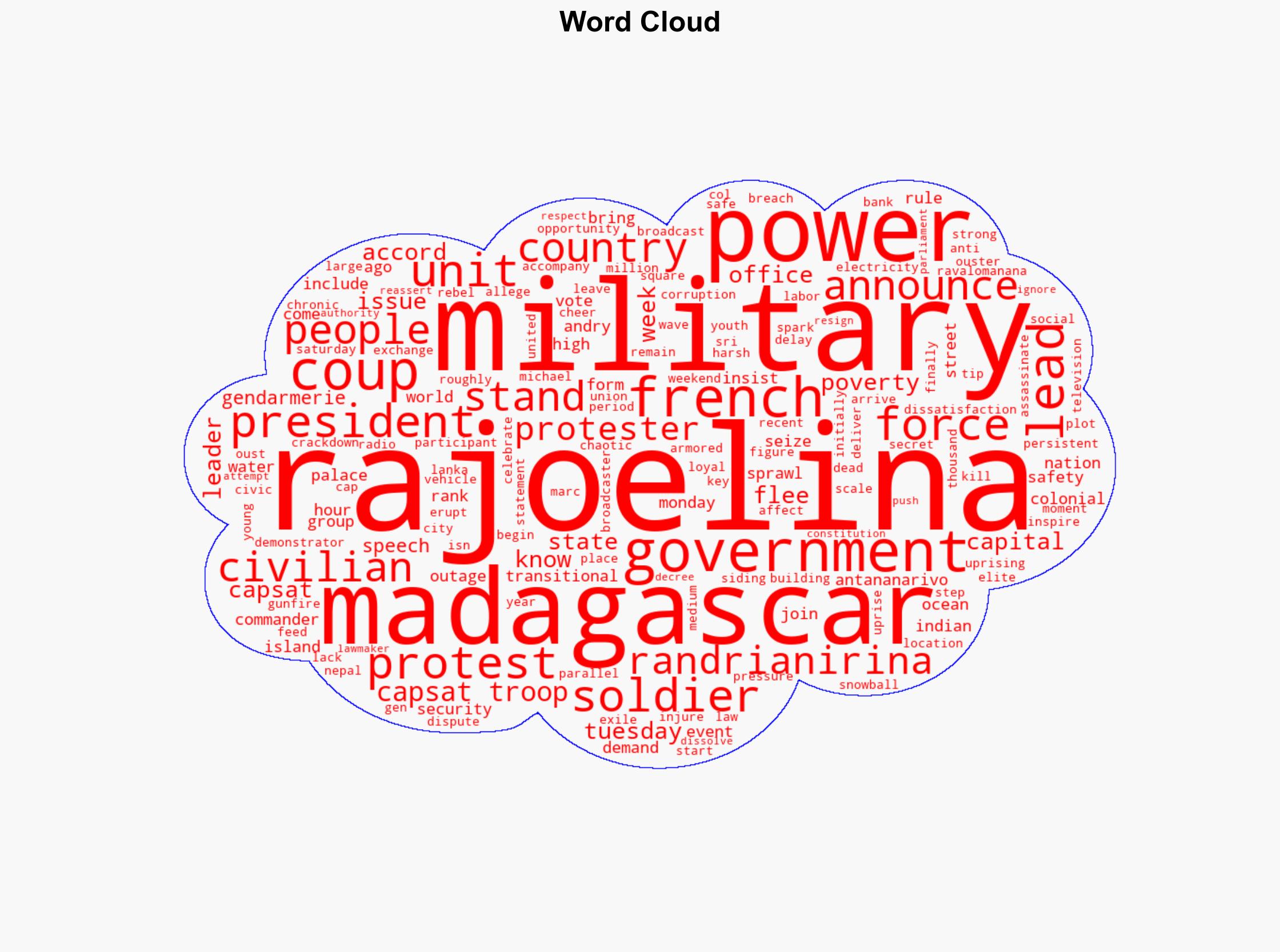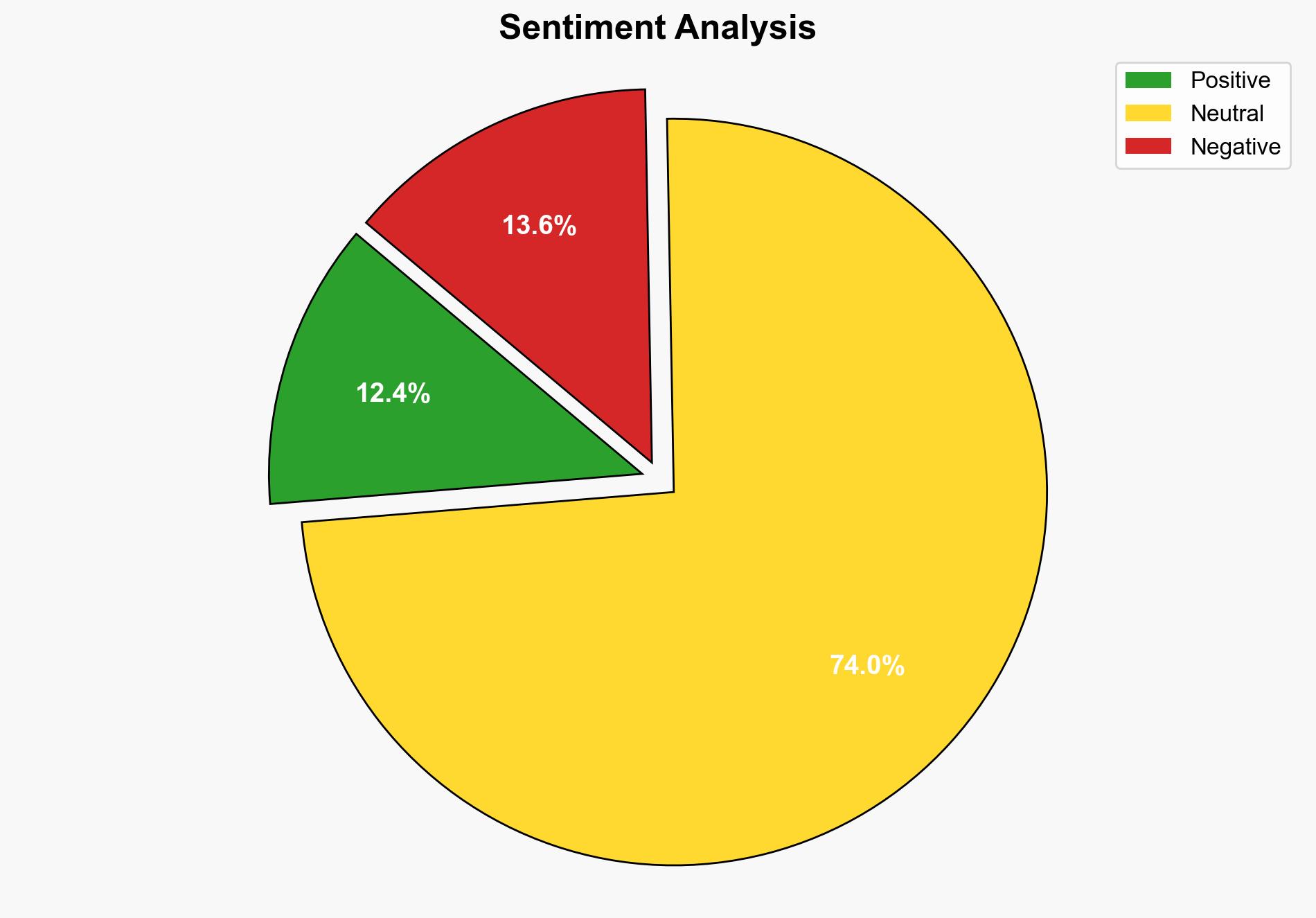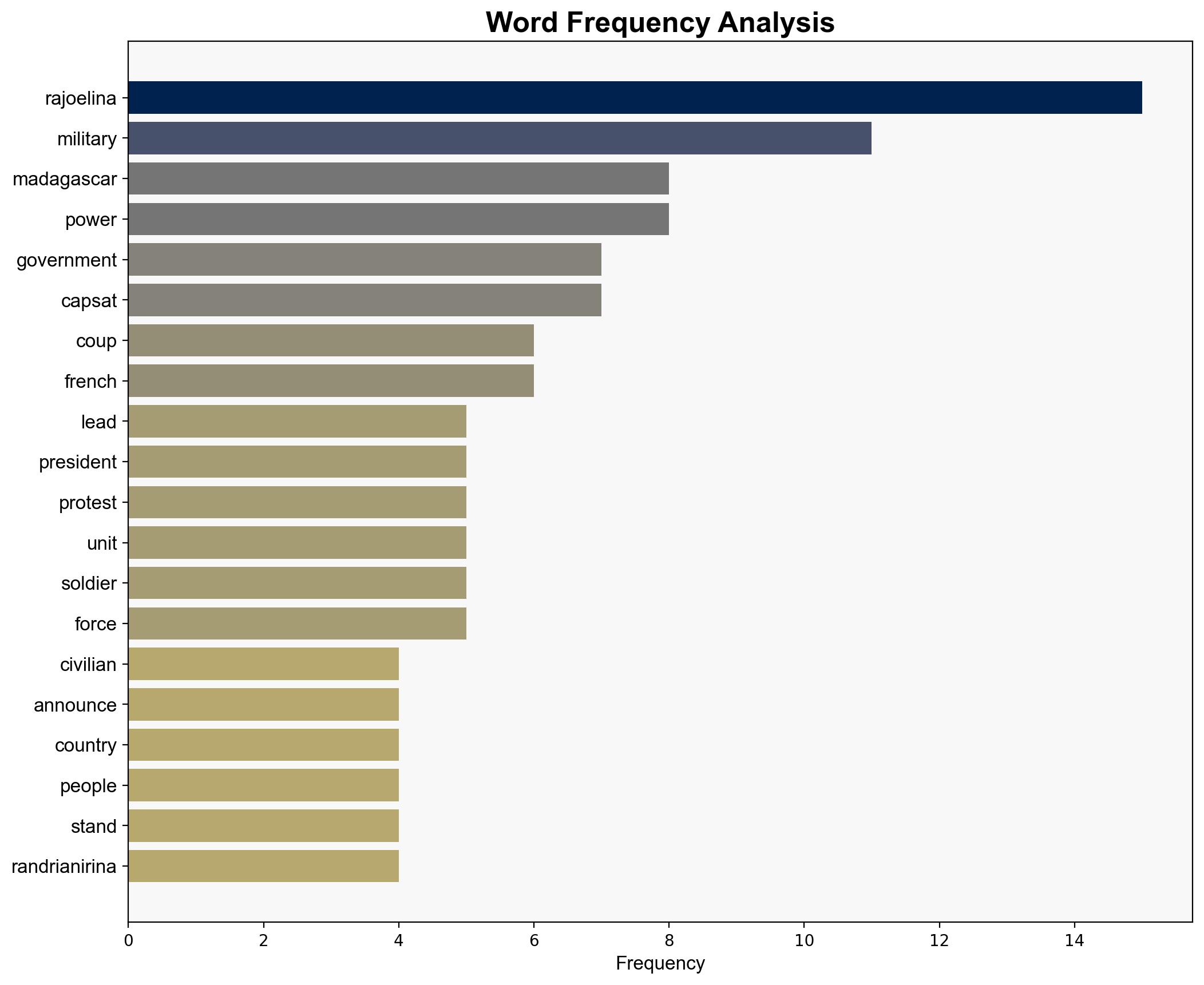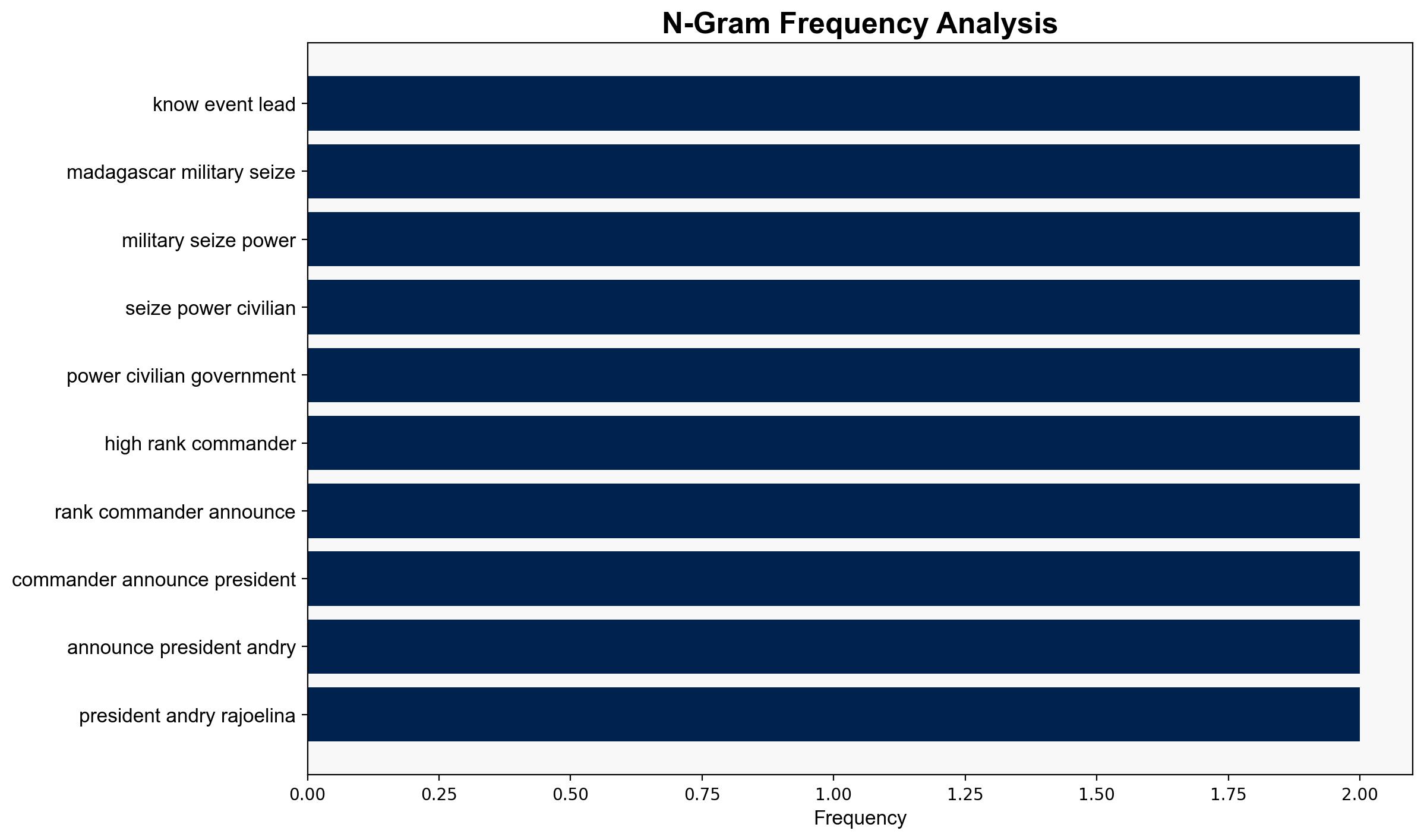What to know about the events leading up to Madagascar’s military coup – ABC News
Published on: 2025-10-15
Intelligence Report: What to know about the events leading up to Madagascar’s military coup – ABC News
1. BLUF (Bottom Line Up Front)
The most supported hypothesis is that the military coup in Madagascar was primarily driven by widespread public dissatisfaction with President Andry Rajoelina’s government, exacerbated by chronic infrastructure failures and economic hardship. Confidence level: Moderate. Recommended action: Monitor the situation for further instability and engage with regional partners to support a peaceful transition and restoration of democratic governance.
2. Competing Hypotheses
1. **Hypothesis A**: The coup was primarily a result of widespread public dissatisfaction with Rajoelina’s government, fueled by chronic issues such as power and water outages, poverty, and alleged corruption. The military’s intervention was a response to public pressure and an attempt to stabilize the situation.
2. **Hypothesis B**: The coup was orchestrated by military leaders with pre-existing ambitions for power, using public protests as a convenient pretext to justify their actions. The military aimed to consolidate power and establish a government more aligned with their interests.
Using the Analysis of Competing Hypotheses (ACH) 2.0, Hypothesis A is better supported due to the significant public protests and the military’s alignment with protestors, as well as historical parallels with previous coups in Madagascar.
3. Key Assumptions and Red Flags
– **Assumptions**: It is assumed that the military acted in response to public dissatisfaction rather than premeditated plans for a coup. The assumption that public protests were spontaneous and not influenced by external actors.
– **Red Flags**: The rapid formation of a civilian government post-coup suggests prior planning. The delay and secrecy surrounding Rajoelina’s speech indicate potential internal conflicts or external pressures.
– **Blind Spots**: Lack of detailed information on the role of external actors or foreign influence in the coup dynamics.
4. Implications and Strategic Risks
The coup could lead to prolonged instability in Madagascar, affecting regional security and economic conditions. The potential for escalation exists if loyalist forces or external actors intervene. Economic impacts include disruptions in Madagascar’s vanilla production, affecting global markets. Geopolitically, the coup may alter alliances and influence in the Indian Ocean region.
5. Recommendations and Outlook
- Engage with regional organizations to facilitate dialogue and support democratic processes.
- Monitor for signs of external influence or support for the coup, which could alter regional power dynamics.
- Scenario Projections:
- Best Case: Peaceful transition to a stable civilian government with international support.
- Worst Case: Escalation into civil conflict with regional spillover effects.
- Most Likely: Continued instability with periodic unrest and slow progress towards democratic restoration.
6. Key Individuals and Entities
– Andry Rajoelina
– Col. Michael Randrianirina
– CAPSAT military unit
7. Thematic Tags
national security threats, regional focus, political instability, coup dynamics




